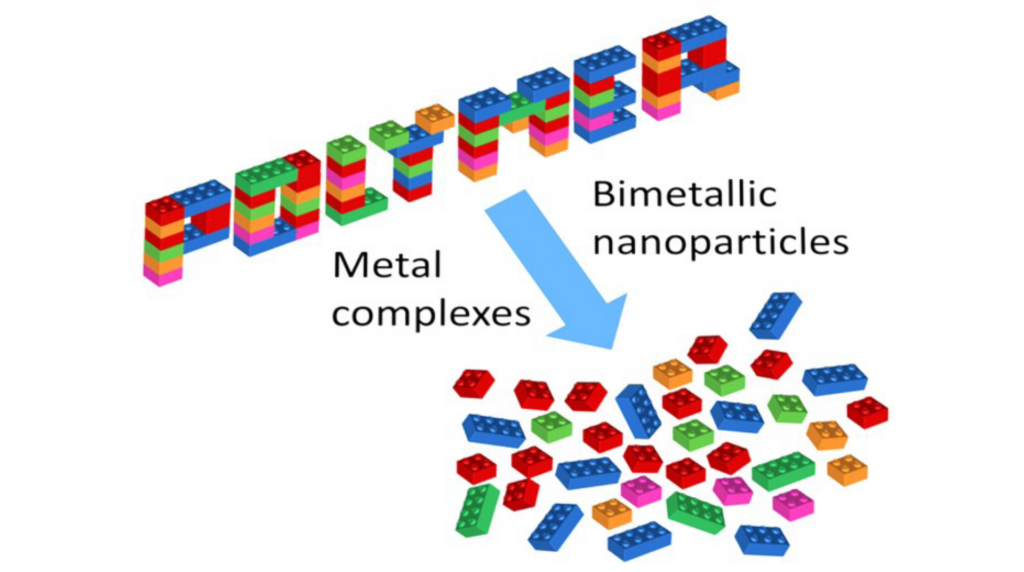CATHY
metal CATalysts for HYdrogenative depolymerisation: comparison of molecular complexes and nanoparticles
The circular economy has become an important issue for our society. In particular, solutions are needed to manage plastic waste with efficient methods. In recent years, reductive depolymerization has emerged as a promising route for recycling plastic waste, as it allows them to be converted into value-added products and is applicable to a wide range of polymers, including polyesters, polycarbonates, polyurethanes and polyamides. To develop this upcycling route, the challenge is to develop active, selective, cheap and recyclable catalysts. These are mostly noble metal complexes, usually Ir or Ru, but also include metals such as Co.
The aim of the project is to test for the first time alloy nanoparticles for the reductive hydrogenation of polymers and to compare their activity and selectivity with metal complexes. Polyurethanes will be targeted as this family of polymers has a variety of forms and includes both thermoplastics and thermosets. Therefore, the first tests will be carried out on model thermoplastic polyurethanes before extending to thermosets. To this end, the project brings together researchers from the NanoCat team at ITODYS, specialists in the synthesis of catalytic nanoparticles, and researchers from the COCP group at IRCP, who study complexes as catalysts for the synthesis and degradation of polymers. Realizing a proof of concept of the possibility of using nanoalloys for the upcycling of polymers should pave the way for future research.


